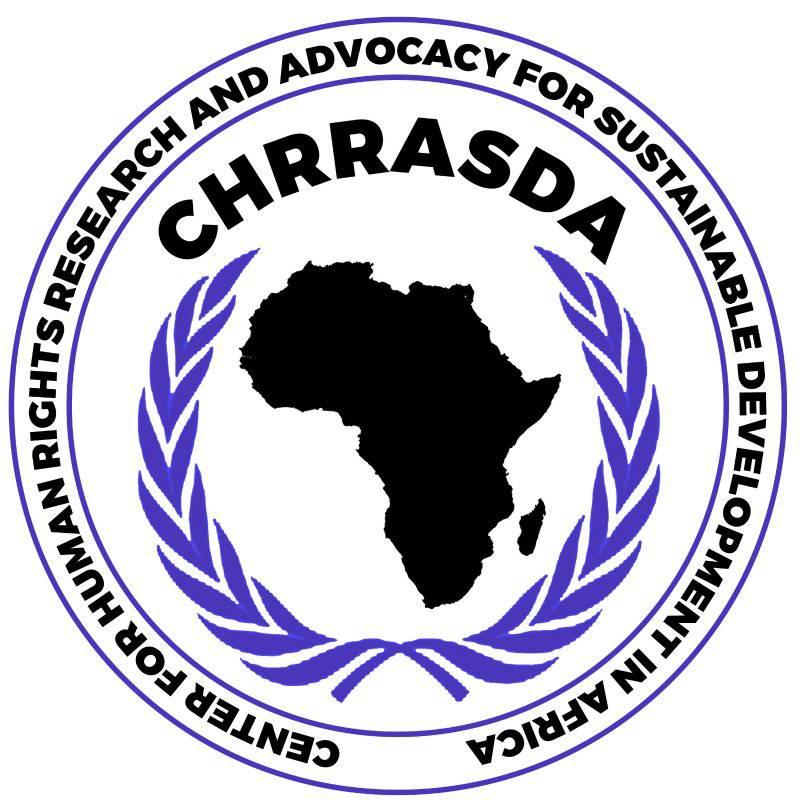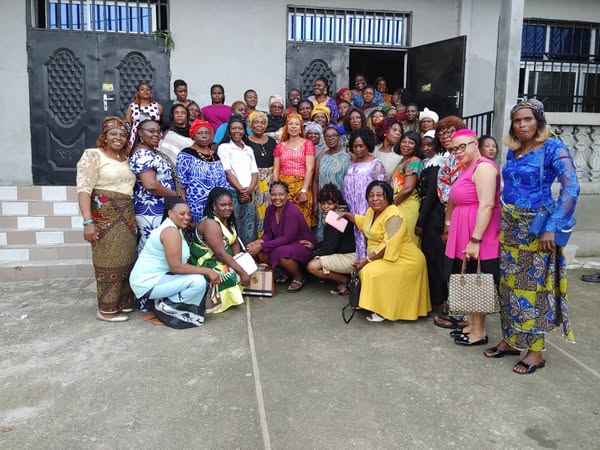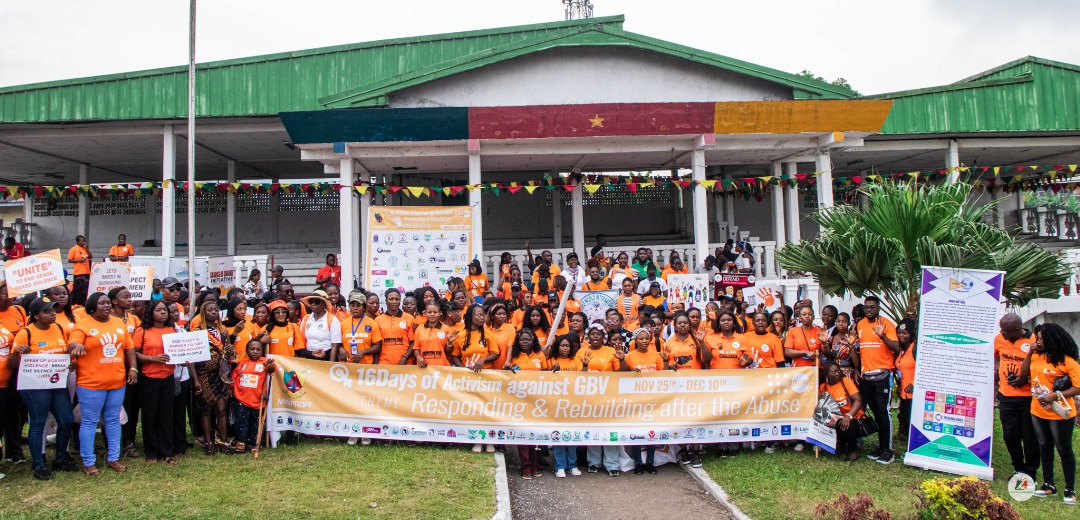The Center for Human Rights Research and Advocacy for Sustainable Development in Africa (CHRRASDA) today Sunday 15th of September 2024 had an insightful discussion with the Bongsisi Nso Women Group in Buea, focusing on Gender-Based Violence (GBV) prevention and response within families.
Gender-based violence continues to affect many families, with women, girls and children being the most vulnerable. It is crucial that we equip ourselves with the tools to prevent and respond to GBV to create safer, healthier and peaceful homes.
Simply put, Gender-based violence (GBV) refers to harmful acts directed at an individual or a group of individuals based on their gender. It is rooted in gender inequality, the abuse of power and harmful norms. The term is primarily used to underscore the fact that structural, gender-based power differentials place women and girls at risk for multiple forms of violence. While women and girls suffer disproportionately from GBV, men and boys are also targeted. For our today’s discussion, we focused on GBV prevention and response at the level of the family.
Having in mind that the family is the cornerstone of societal values, it is also a center where various forms of violence occur, with women, girls and children affected disproportionately. Most often, family members are unaware and as such act ignorantly and the negative effects extend to our communities, reason why we keep hearing of killings, rape, assault, battery here and there. The rate of divorces are too high because of domestic violence and other related issues as the family sanctity has been defiled. It is on this note that the Center for Human Rights Research and Advocacy for Sustainable Development in Africa held this mind changing discussion with the Bongsisi Nso Women’s Group, to empower them with the knowledge and tools to combat GBV and create healthier, violence-free homes and communities.
Key Points of discussion focused on;
1. Understanding GBV: We began by exploring the various forms of gender-based violence which include, domestic violence, intimate partner violence (IPV), sexual, physical violence, emotional violence, and economic abuse as the most common in our homes and communities. This was to help these women understand when and how it occurs and how to take proactive steps to intervene.
2. The Role of Families in Prevention: The facilitator ( Yuven Juliana) reiterated that Prevention and response to GBV starts at the level of the home which she explain that it is from the home that we raise our children and children live by what they experience in their homes. She further emphasized that promoting gender equality, open dialogue, and mutual respect between family members is crucial in breaking the cycle of violence as families must model these values for future generations to emulate.
3. Recognizing Early Warning Signs: Most parents have failed in this aspect especially parents who don’t build mutual relationships with their children. Most children have tried to communicate some of these early warning signals to parents especially in instances of sexual violence at homes where fathers have sex with their daughters, uncles and nieces, cousins and even among children (incest) but parents especially mothers paid a deaf ear. Early detection is very important. Some children start manifesting threats of violence from their tender ages and most parents neglect these abnormal behaviors and before you know it, they grow with it and later on become a threat to society. Recognizing the warning signs of abusive behaviors can be helpful for family members to intervene before the violence escalates.
4. Response Mechanisms: We also laid emphasis on how to respond to instances of GBV within the family. Here we encouraged women to advise their children to always open up to them when they are faced with such situations. Ending this starts with reporting by survivors for it is through reporting that we can easily provide support to survivors, seek legal redress, access health and social services, psychosocial support etc.
5. Legal Protections for Victims: CHRRASDA shared valuable information on the rights of GBV victims and the legal frameworks in place to protect them. We encouraged the women to utilize these protections and support others in their community to do the same.
6. Building Support Networks: CHRRASDA laid emphasis on building very strong support networks from homes to communities. This is because a strong community can prevent and mitigate the effects of GBV, especially relying on the strength of women’s groups, like Bongsisi Nso Women’s Group and many others, as they can provide education to their families, provide physical, emotional/psychosocial support for survivors and those at risk of experiencing violence.
To all viewers out there, creating Peaceful Homes and Communities is very important for a violence free society. Families are at the heart of change and are encouraged to stop any form of violence at the level of homes because it is from the home that it goes out to society. By empowering women and communities to stand against GBV, we can build safer, more peaceful homes and, in turn, a more peaceful society.
In all, we thank the Bongsisi Nso Women Group for their active participation in our session of today and for their commitment in fostering peace within their families and communities. We also Thank Bongsisi Women in a very special way for honouring the Chief Executive Officer (CEO) of CHRRASDA, Yuven Juliana with the Title of a She’ey for her excellent contributions in fostering peace within homes and communities. Together, we are stronger in the fight against gender-based violence and Cultivating a Culture of Peace, which represents the 2024 Theme of the International Day of Peace.
#EndGBV#CHRRASDA#EmpowerWomen#HumanRights#FamilyFirst#BongsisiNso#PeacefulCommunities#Buea#Cameroon
# BongsisiWomen4PeaceBuilding


